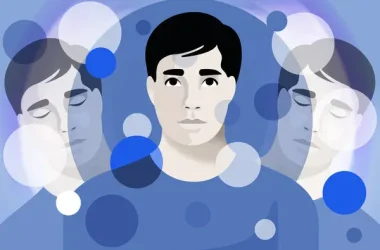A worker sprays disinfectant in front of the Daenam Hospital in Cheongdo, South Korea. Photographer: Lim Hwa-young/Yonhap via AP Photo
This post was originally written by Kanga Kong for Bloomberg on February 22, 2020 and can be accessed here.
Almost all patients at a psychiatric ward of a South Korean hospital tested positive for the coronavirus, with local reports saying a religious sect with followers who were infected had attended a funeral in the same complex.
South Korea’s two confirmed deaths from the virus were also from the Cheongdo hospital’s mental health division, Korea’s Centers for Disease Control and Prevention said Saturday. Both patients had been moved out of the psychiatric ward for medical treatment before their deaths, Vice Health and Welfare Minister Kim Kang-lip said at a briefing.
South Korea reported 229 new confirmed cases on Saturday, as the number of infections more than doubled in a day to 433. Of the total, 231 were linked to a church called Shincheonji in the city of Daegu, while at least 111 — including four nurses — were from the psychiatric ward of the hospital in Cheongdo County. The two clusters account for almost 80% of the confirmed cases.
Cheongdo, famous for its bull-fighting competition, is a rural town near Daegu. The funeral of the brother of the Shincheonji’s leader took place earlier this month in Cheongdo, and health officials are examining ties between the church and the hospital. Local media reports say the funeral was held in the building that houses the psychiatric ward.
Shincheonji, formally known as Church of Jesus, the Temple of the Tabernacle of the Testimony, said on its website that it’s trying to list attendees of the funeral and denied its Chinese followers were part of the crowd at the ceremony.
Earlier this week, the disease-control center said an inpatient who died after suffering for a long time with chronic pneumonia was confirmed only after his death to have been infected with the coronavirus. The 63-year-old man had been at the hospital’s mental health unit since late 2017, the KBS broadcaster reported.
The second fatality was a patient from the same ward, identified only as a woman born in 1965. She died shortly after being transferred to another hospital in Busan because of a lack of beds, the center said.


